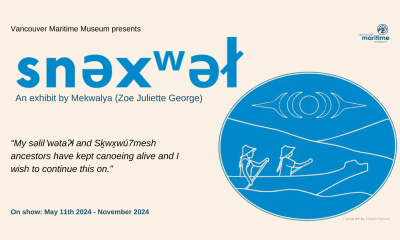Art and Culture
Hong Kong movie and TV mogul Run Run Shaw dies at 107
HONG KONG—Run Run Shaw built a Hong Kong movie and TV empire that nurtured rising talents like actor Chow Yun-fat and director John Woo, inspired Hollywood filmmakers such as Quentin Tarantino and produced the 1982 sci-fi classic “Blade Runner.”
Shaw’s prolific studio helped bring kung fu films to the world but he also passed on the chance to sign one of the biggest names in that genre: the young Bruce Lee.
The missed opportunity was a rare misstep for Shaw, who died at age 107 on Tuesday, according to a statement from Television Broadcasts Limited (TVB), which he helped found in 1967. No cause of death was given.
His Shaw Brothers Studios, once among the world’s largest, churned out nearly 1,000 movies and gave young directors like Woo their start. He produced a handful of U.S. films that also included the 1979 disaster thriller “Meteor.”
His television empire, which remains a dominant force in Hong Kong, was where stars like Chow got their first breaks. Wong Kar-wai, the director behind critically acclaimed art-house movies like “Chungking Express” and “In the Mood for Love,” got his start through a TVB training course and worked at the station briefly as a production assistant.
Shaw (pronounced Shao in Mandarin) led TVB until retiring as chairman in December 2011 at the age of 104. He is survived by his second wife and four children from his first marriage.
Shaw was born near Shanghai to a wealthy textile merchant. His exact birthdate is unclear, and different Shaw-related websites say he was born in 1906 or 1907.
Shaw was born near Shanghai to a wealthy textile merchant. One of his six siblings, elder brother Runme Shaw, set up a silent film studio, Unique Film Production Co. Shaw and a third brother, Runje, went to Singapore in 1923 to market films to southeast Asia’s Chinese community and eventually opened 139 movie theatres across the region.
After surviving World War II, the company was faced with growing competition from rivals in Hong Kong and Singapore, so Shaw moved to Hong Kong in the late 1950s to modernize the company. He shifted focus from exhibiting films to producing them and renamed the company Shaw Brothers.
His path to Asian moviemaking dominance began in earnest in 1961 when he opened Movie Town, a vast, state-of-the-art studio in Hong Kong’s rural Clearwater Bay. With 1,500 staff working on 10 soundstages, Movie Town was reputed to be the most productive studio in the world. At its busiest, actors and directors churned out 40 movies a year, most of them featuring kung fu, sword fighting or Asian gangsters known as triads.
The result was a library of nearly 1,000 movies such as “The One Armed Swordsman” and “The Five Fingers of Death,” the latter being one of Shaw’s most successful in the United States.
The studio’s logo the initials SB on a shield was inspired by the Warner Brothers emblem, in a nod to its Hollywood aspirations. It came full circle when Tarantino appropriated the Shaw Brothers logo for use in his two “Kill Bill” movies, which were in homage to the studio and other Hong Kong martial arts movies.
“For a year, I’d watch one old Shaw Brothers movie a day if not three,” Tarantino told the Los Angeles Daily News in 2003, discussing his preparation for filming.
Films were produced with assembly-line methods and stars and technical staff lived in dorms on site. Budgets were low and production schedules were quick 35 days to three months, according to a 1976 Time magazine report.
The producer acknowledged that the quality of the films was not his foremost concern. “We’re here to make money,” he told Time. Even Shaw protege Raymond Chow complained about the B-movie quality of the films when he was first hired to work in the publicity department.
“I told Sir Run Run to forget it,” Chow told Asiaweek magazine in 1983. “I said I did not think I could keep my job because the pictures were so bad,” said Chow, whose comments earned him a promotion to the production department.
While Shaw didn’t create the kung fu movie, he was quick to capitalize on the genre’s trendiness and used a modernized studio system and centralized production techniques to pump out films quickly, beating out rivals to satisfy audience demands.
In their heyday, Shaw films were reportedly seen by 1.5 million people a week, many of them in the cinemas owned by Shaw and his brothers in southeast Asia.
The movie mogul failed to spot the potential of a young Bruce Lee, who had returned to Hong Kong after a stint in Hollywood. Lee wanted a bigger salary and creative control of his films. But Shaw wouldn’t budge from the standard contract given to all his actors.
Lee signed instead with rival upstart Golden Harvest, founded by Chow to get away from his former boss’s standardized factory-like studio system. Other up-and-coming stars like Jackie Chan also spurned Shaw’s factory-like approach.
Movie audiences moved on to grittier, more realistic or contemporary action fare, though Shaw movies still have a solid cult following globally. The Shaw film library was eventually sold in 2000 to Celestial Pictures, which has been restoring them and re-releasing them digitally.
Film production ceased in 1983, but by then Shaw had switched his focus to television. In 1973 he took control of TVB, which remains Hong Kong’s dominant TV station. It served as the launching pad for the careers of talents including actor Chow Yun-fat, Wong Kar-wai, heartthrob Andy Lau and comedian Stephen Chow.
The broadcaster’s Chinese language channel is also popular in southern China and its Chinese programs, many dubbed into other languages, are seen by 300 million households around the world. Shaw, knighted by Queen Elizabeth II in 1974, was also a philanthropist. In 2002 he founded the annual Shaw Prizes, Asia’s version of the Nobel Prizes. The honour offers US$1 million annually to winners in mathematics, medicine and astronomy.
Shaw preferred to stay out of the spotlight and rarely gave interviews, even about his philanthropy. A journalist for the South China Morning Post newspaper recounted mentioning during a 1984 interview that a medical team fighting leprosy in southwestern China had trouble travelling over the rugged, mountainous terrain. On hearing this, Shaw immediately decided to donate off-road vehicles but demanded there be no publicity.
TVB statement: bit.ly/1knaVjY






















